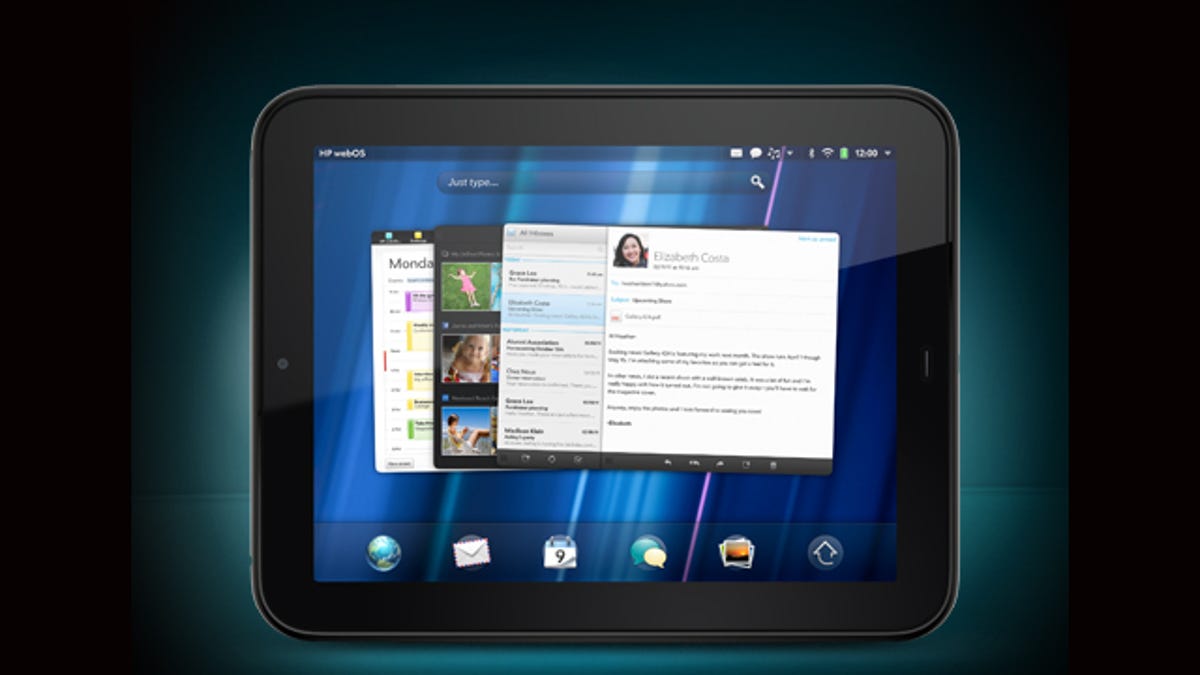Could HP bring WebOS back?
Hewlett-Packard is keeping its PC business. So if it's staying in the consumer world, why not revive its mobile ambitions with WebOS too?

commentary If Hewlett-Packard is flip-flopping on the PC business, it should go all the way and bring WebOS and the mobile business back as well.
After an evaluation of the business, HP said today that it would keep its personal systems group, aka its consumer PC business, calling it the best move for shareholders, consumers, and the company.
The decision caps off a dizzying few months for HP, which today is putting the kibosh on the complete transformation of the company from a consumer electronics product manufacturer to a business-class software and consulting services provider. In its bid to get out of anything dealing with consumers, HP essentially put WebOS on ice.
While WebOS and HP's mobile devices business have their fair share of problems, it may be prudent for the company to thaw out WebOS and attempt a comeback. If the company wants to remain a major player in the consumer technology business, it will need to have a mobile strategy. WebOS remains a viable one, if the company can actually get its act together.
That, however, remains far from a certainty. HP has become like the crazy uncle in the technology family; you just can't predict what it's going to do.
As a result, the fate of WebOS is still up in the air. New CEO Meg Whitman said WebOS isn't directly tied to the PC business, so keeping one doesn't necessarily mean keeping the other. The leadership team is still working on a decision about WebOS, and Whitman said she hopes to have a decision in the next couple of months.
"Coming to a town near you soon, I hope," she said during a conference call today to discuss the PC business decision.
Admittedly, HP bungled its handling of WebOS in the first go-around. The company took too long to roll out its products, didn't set realistic prices, and failed to properly promote its mobile lineup. Killing off its WebOS initiative right when it was getting off the ground probably didn't win the company a lot of fans. But the platform could still be useful if the company wants control over the fate of its mobile devices ambitions.
While never commercially successful, WebOS won a lot of praise for its ease of use and intuitive interface. It was an elegant platform, often burdened with disappointing hardware. It would be a waste to let the platform fall by the wayside.
There were other positives with WebOS, too. HP's TouchPad tablets flew off the shelves after the company and retail partners offered them for $100 apiece. Granted, the company was operating at a loss with each sale, but there is now a base of WebOS users in the market, which could be used as a foundation to reintroduce a WebOS-powered smartphone.
This time, HP really needs to focus on the quality of the product. The original Pre, launched by Palm, suffered because it was positioned as a flagship product built with cheap materials. HP didn't improve too much upon that with its initial product offerings. The company also needed to be more aggressive in courting developers for the platform. Like Palm, it never really understood the importance of getting the developer community behind WebOS.
So far, HP has been mum on the notion of a smartphone. When asked about them, Todd Bradley, who runs the personal systems group, only focused on the ultrabook segment of thin laptops.
Whitman, meanwhile, acknowledged that HP needs to be in the tablet business.
"We're going to make another run at this," she said.
But Whitman and Bradley only talked about Windows 8, which isn't expected to hit the market any time soon. The iPad, meanwhile, has established itself as the tablet to buy for consumers, with Android tablets making only minor headway with consumers.
Bradley scoffed at the idea that HP was behind on its tablet business.
"We're at the beginning stages of a new segment in personal computing," Bradley said. "I hardly believe that a few months in we can be classified as too late."
But with more Android tablet markets flooding the market and the iPad likely to cement its position further with another iteration early next year, Bradley may want to reassess that comment.
If HP wants to get into the tablet game faster, it may want to take a closer look at WebOS.

